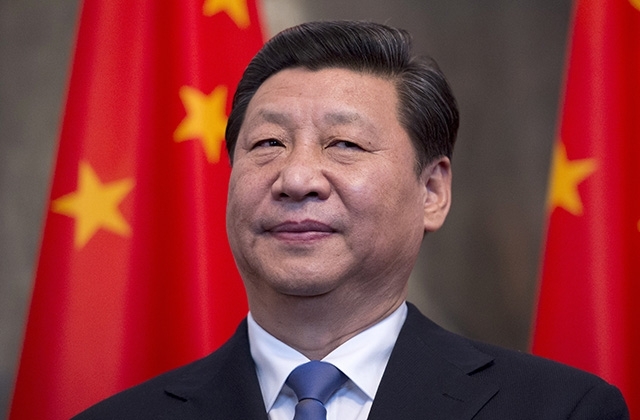The ongoing war between Israel and the terrorist organization Hamas in Gaza continues to draw the attention of world powers. This conflict has been orchestrated, to some extent, by the Iranian Ayatollah regime. Recent developments indicate significant geopolitical shifts in the Middle East, with China and the United States both making strategic moves in the region.
China's Ministry of Defense made a significant announcement on a Sunday morning, stating that six warships from the Chinese military would be stationed in the Middle East in the coming week. Last week, these warships arrived in the area and conducted a joint military exercise with the navy in Oman. This move by China underscores its growing presence and interest in the Middle East.
BREAKING:
— Megatron (@Megatron_ron) October 22, 2023
China is sending six warships to the Middle East!
It says that it will not be a mute observer!
China finally realizes that it can no longer be a silent observer of global conflicts around the world. China wants to protect its oil trade routes from the Middle… pic.twitter.com/YHADhZG5ua
Notably, these developments occur against the backdrop of the United States' military support for Israel. The second American aircraft carrier, the Gerald Ford, is currently en route to deployment in the Middle East. According to Israeli reports, the United States will also be transferring Iron Dome batteries to Israel, a move that reaffirms its commitment to Israel's security.
China's stance in this conflict has been intriguing. While not fully condemning Hamas, China has seemingly aligned itself with the Palestinian cause. Chinese President Xi Jinping held discussions with Egyptian Prime Minister Mostafa Madbouly and expressed support for Egypt's efforts to establish humanitarian corridors to the Gaza Strip. President Xi emphasized China's readiness to coordinate with Egypt and other Arab countries to find a comprehensive and lasting solution to the Israeli-Palestinian conflict. He underscored the urgency of reaching a ceasefire to prevent further escalation and chaos in the region.
It's worth noting that China did not outright condemn the recent terrorist attack but rather condemned "actions that harm civilians" without directly attributing responsibility to Hamas. Wang Yi, the most senior Chinese diplomat, went further by suggesting that the Israeli attacks "go beyond self-defense."
🚨BREAKING NEWS: China Sides With Hamas and Calls For Israel To Back Down Saying "Israel's actions have gone beyond self-defense” ⚠️
— Matt Wallace (@MattWallace888) October 16, 2023
China’s public position here indicates they currently see the U.S. as extremely weak with Joe Biden as president.
4 days ago China sent fighter… pic.twitter.com/ksjvqF9J8N
In response, the Israeli Ministry of Foreign Affairs expressed "deep disappointment" with China's position. This aligns China with Russia, its ally, as both nations seek to challenge the United States' global influence. The U.S.'s deep involvement in the Middle East could, under certain circumstances, weaken its ability to respond to threats, such as those related to Taiwan. Additionally, a widespread conflict in the Middle East could disrupt efforts to establish a competitive trade route from India through the Emirates, Saudi Arabia, Jordan, and Israel to the European Union.


